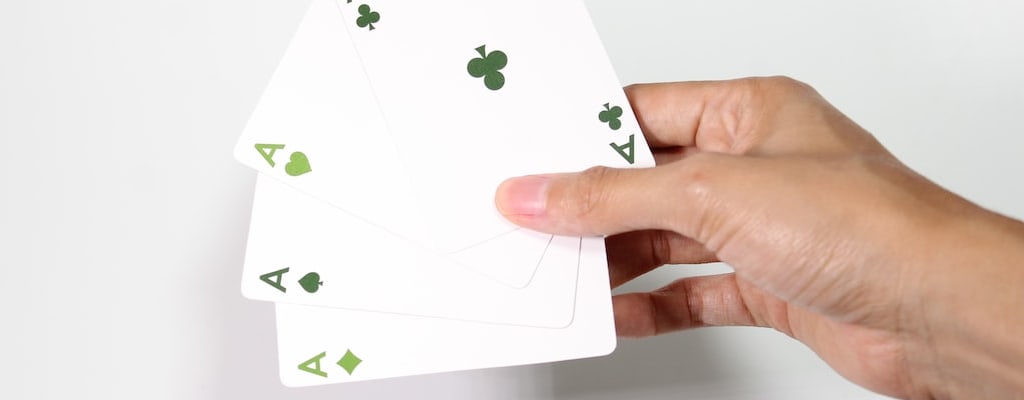heads will roll: Idiom Meaning and Origin
What does ‘heads will roll’ mean?
The idiom heads will roll means that people will be punished or fired for their mistakes or failures.

Idiom Explorer
The idiom "hold over someone's head" means to continually remind someone of a past mistake or wrongdoings in order to control or manipulate them.
The idiom "hell to pay" means to face severe consequences or trouble for one's actions or decisions.
The idiom "hell mend someone" means that someone will have to suffer the consequences or outcomes of their actions, usually in a negative way.
The idiom "head-the-ball" refers to a person who is unpredictable, scatterbrained, or lacks focus. They often make impulsive decisions or behave in a foolish manner.
The idiom "heads or tails" refers to a decision or choice being made by flipping a coin, where "heads" represents one option and "tails" represents another. The outcome determines the decision, leaving it up to chance or fate.
The idiom "head south" means to go in the wrong direction or to experience a decline or failure.
When it comes to the idiom "head south," there are a few things we know for sure. This expression is commonly used in the United States and is typically used to imply that something is going in the wrong direction or turning out unfavorably. The idea of going "south" in this sense implies moving away from the desired or intended course.
The idiom "have someone's blood on one's head" means to be responsible or guilty for causing harm or death to someone.
The idiom "have it coming" means to deserve or expect something, usually negative, as a consequence of one's actions or behavior.
The idiom "hand someone his head" means to defeat or humiliate someone completely, usually in a competition or conflict.
The idiom "hand over head" refers to doing something quickly or without care, often in a hurried or reckless manner.
Gruesome Origins
The idiom "heads will roll" is commonly used in English to convey that serious consequences will occur as a result of certain actions or decisions. It is often used in professional or organizational contexts and has a figurative rather than a literal meaning.
The origin of this idiom can be traced back to medieval times when beheading was a common method of punishment for crimes. The act of decapitation signified the severity of the offense, and the literal meaning of "heads will roll" derived from this historical context. It implied that someone would be held accountable and face dire consequences.
Over time, the idiom has evolved to hold a metaphorical meaning. It now indicates that someone will face severe repercussions, such as losing their job or position of authority. This phrase is frequently used in corporate settings, where the potential consequences of failure or mistakes can be significant.
This idiom is deeply ingrained in the English language and is employed in various contexts, including politics, business, and everyday conversations. It emphasizes the seriousness or gravity of a situation, warning individuals about the potential fallout of their actions.
While the idiom's origin is rooted in a violent and brutal historical practice, its usage today extends beyond the literal meaning of physical harm. It serves as a powerful metaphorical expression, evoking a sense of impending doom and conveying the notion that significant consequences are imminent.
It is important to note that the exact origins of idioms are often difficult to trace with certainty. Language is constantly evolving, and idioms, in particular, can undergo changes in meaning and usage over time. However, "heads will roll" has become a well-established and widely recognized phrase in English, capturing the enduring fascination with consequences and accountability.
When using the idiom "heads will roll," it is important to consider its related idioms and their meanings. One such idiom is "hell mend someone," which means that someone will face the consequences of their actions, often in a negative or unfortunate way. In a situation where someone's actions have caused harm or damage, it can be said that they will have "hell to pay."
Another related idiom is "get what's coming to one," which means that someone will receive the punishment or consequences that they deserve. It implies that justice will be served and that the individual will face the appropriate outcome for their actions.
In some cases, individuals may be aware that they will face consequences for their actions and may even anticipate them. This can be expressed with the idiom "catch it," which means that someone expects or knows that they will experience negative repercussions or criticism.
In the context of someone's actions leading to negative consequences, it can be said that they have "it coming." This idiom implies that the person's actions have made them deserving of the negative outcome, often due to their own behavior or choices.
These related idioms serve to further emphasize the notion that serious repercussions will occur as a result of certain actions or decisions. They add depth and nuance to the meaning of "heads will roll," highlighting the inevitability of facing the consequences that one's actions bring.
The idiom "heads will roll" conveys the idea that serious consequences will occur as a result of certain actions or decisions. It is deeply ingrained in the English language and has a metaphorical meaning beyond its literal origins. When using this idiom, it is important to consider its related idioms, such as "hell mend someone," "get what's coming to one," "hell to pay," "catch it," and "have it coming," as they further emphasize the inevitability and seriousness of facing the consequences of one's actions.
Example usage
Examples of how the idiom "heads will roll" can be used in a sentence:
- The CEO announced that heads will roll if the sales targets are not met this quarter.
- After the scandal was uncovered, the manager said heads will roll and there will be serious consequences for those involved.
- If the project fails to meet the deadline, heads will roll and the team will have to face the consequences.
More "Consequences" idioms

